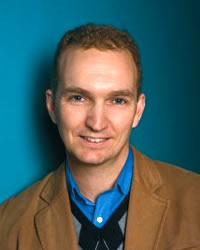Inauguration BEL
- October 1st, 2010
Inauguration BEL
Magnus Berggren

Organic Bioelectronics
Abstract:
Organic electro-active materials are presently explored for an array of electronic applications. The "organics" can be processed from solutions, such as from aqueous ink formulations, are flexible, can conduct both ionic and electronics species and specific functionality can be introduced or tailor made via chemical synthesis. This opens for plastic electronics for a vast array of electronic applications. The same material features offer also unique opportunities to record and regulate functions in biological systems. Here, recent advances is reported of the development of organic bioelectronics to regulate cell growth and neuronal signaling. In one platform, organic electronic surface switches has been established which can control the conformation and density of extracellular proteins, such as integrin and fibronectin. Depending on the voltage applied to these electrochemical organic surface switches the cell hosting and growth characteristics can be regulated. For instance, those surface switches have successfully been utilized to regulate tissue gradients. In a second platform, organic electronic ion pumps (OEIP) and transistors (IBJT) have been developed. These devices convert electronic addressing signals into the delivery of cations or charged biomolecules at high spatiotemporal resolution. The OEIPs and the IBJTs have been explored in various applications, in vitro and in vivo, to regulate functions of neuronal systems.
Biography:
Magnus Berggren is the Önnesjö professor at Linköping University, Sweden, and guides the research activity of the organic electronics group. The 25 scientists of the organic electronics group aim at exploring electronic and optoelectronic functions of organic materials for paper electronics and bioelectronics applications. Dr. Berggren is the director of the Strategic Research Center for Organic Bioelectronics (OBOE) and is also the research manager at the Printed Electronics Arena (PEA). He collaborates closely with the Karolinska Institutet and several industries to explore novel organic electronics for drug delivery, tissue engineering, paper display, and sensor applications. In 1996, Dr. Berggren received his PhD in applied physics, from Linköping University, and started as a postdoctoral fellow at Bell Laboratories, Murray Hill, New Jersey. In 1997, he joined a team of investors and scientists to establish Thin Film Electronics AB (TFE), a company that develops printed organic memories. Dr. Berggren was the managing director for TFE until 1999. Then, he joined Acreo Institute to explore paper electronics and in 2001 he became a professor of organic electronics at Linköping University.
